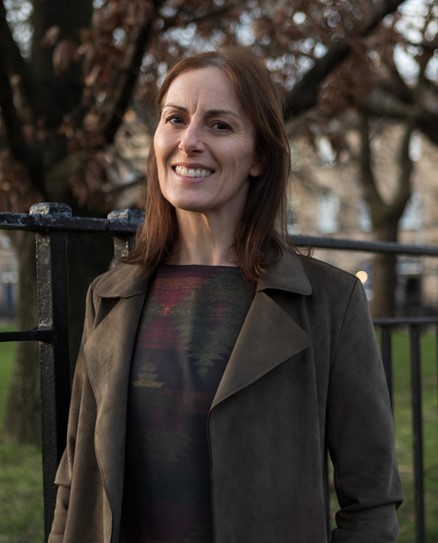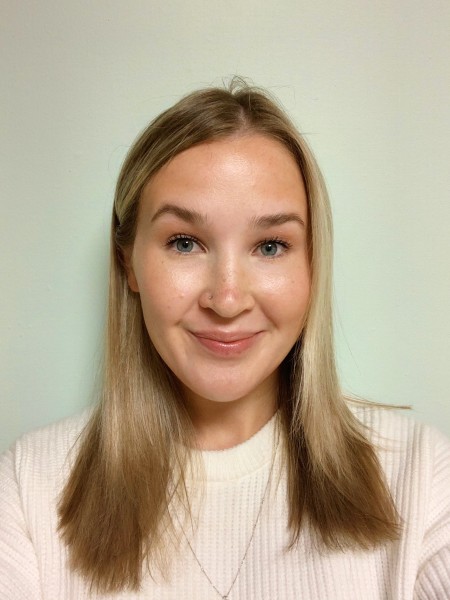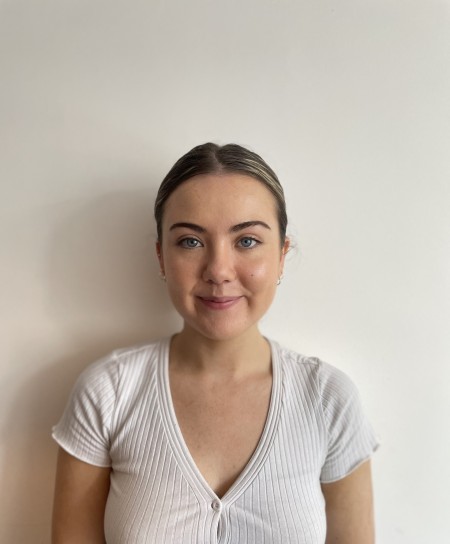Across the trust, we believe that you cannot support someone without understanding their physical difficulties, the emotional impacts, and what matters to them and those around them.
It is normal for people having health difficulties to have strong emotional responses. This includes people:
- Living with long-term health conditions and symptoms
- Having a medical emergency
- Going through tests and other procedures
- Caring for a child or family member with health needs.
Feelings can include fear, sadness, anger, worry, trauma, and low mood. Other family members, friends and carers can have their own concerns and feelings. These feelings can come and go. They can often improve over time. It can feel as if they get ‘stuck.’
Sometimes, a person can deal with emotional distress themselves. This may be with the support of friends, family members, support at school or work, and from the healthcare team. Some people also benefit from more specialist support. This is the role of health psychology.
Many of our services have psychologists working as a core part of the team. We work with each person, and each family, to understand their stories and needs. We work closely with people to understand their strengths and resources.
Our commitment is to help people to:
- Make sense of their situation.
- Find solutions to their difficulties.
- Find ways to cope with the demands and effects of physical events, illnesses, and symptoms.
- Develop new ways to cope with the uncertainty around health and treatments.
- Adjust to everyday life while living with the effect of their health problem.
- Live a full and meaningful life alongside the health condition(s) and symptoms.
Our psychologists and therapists are trained to understand how people respond, think, feel, and act in different situations. They also have knowledge of the medical area they work in. The psychologists complete a doctorate in clinical, counselling or health psychology. They also have training in different therapeutic approaches. They register as practitioner psychologists with the Health and Care Professionals Council (HCPC).
This page has more about our team members, where we work in our hospitals, and how we work.
Our services within health psychology include:
You may have more than one long-term health condition and are unsure which service is for you. If so, please ask to be referred into any and we can change as needed.
We see patients across different sites. There may be others, but the most common are:
-
North Tyneside General Hospital
-
Wansbeck General Hospital
-
Hexham General Hospital
-
Monkseaton Medical Centre
-
Northumbria Specialist Emergency Care Hospital, Cramlington
We are also able to offer patients remote appointments via telephone or video call.
More information about our hospital sites, including parking and facilities, is available here.
An example of our therapy rooms
We provide therapy and support for people with psychological issues related to their long-term health condition. We work closely with others involved in your care such as doctors, nurses, dietitians, and physiotherapists.
We can help with a range of psychological difficulties when you are diagnosed and/or being treated.
This might include:
-
Management of specific health conditions
-
Adjustment to condition
-
Distress associated with condition
-
Coping strategies
-
General wellbeing
-
Sleep
-
Lack of motivation and behaviour change towards condition
-
Disruptions to relationships/social life due to long-term health condition
-
Trauma that is directly disrupting management and engagement of health condition
-
Distress due to upcoming life-altering intervention (e.g., surgery) or the possibility of it.
We work alongside clinicians to help patients find solutions to their difficulties. This can be through one-to-one appointments or group work.
We work with patients using a different therapeutic models, psychoeducation, and mindfulness or wellbeing coping strategies.
We do not prescribe medication or perform any physical examinations.
- Therapeutic models
- Cognitive Behavioural Therapy (CBT)
- Compassion Focused Therapy (CFT)
- Acceptance and Commitment Therapy (ACT)
- Eye Movement Desensitisation and Reprocessing (EMDR)
- Cognitive Analytic Therapy (CAT)
- Dialectical Behaviour Therapy (DBT)
- Psychoeducation
- Mindfulness
You can read more about these techniques on this page.
Our services within health psychology include:
Follow the links for more details.
Dr Gail Dovey-Pearce, consultant clinical psychologist 
Gail is a consultant clinical psychologist in paediatrics, and head of health psychology for Northumbria Healthcare. She works with young people with long-term health needs, who are navigating their teenage years with these added health challenges. She also works with families whose babies are being cared for in the Special Care Baby Unit.
Her goal is to enable children, young people and families, to live full and active lives. As head of service, her vision is to support the health psychology team to build psychological and emotional care into every healthcare contact across the organisation.
Gail is a graduate of the University of Newcastle upon Tyne and is currently studying part-time at Oxford University, for the Postgraduate Certificate in Health Research. A long-standing research interest has been to support the active involvement of young people, and other groups and communities, in developing healthcare services that better meet their needs.
She also has roles as a member of the Association of Young People’s Health Advisory Council, and an associate editor of the Journal of Clinical Child Psychology and Psychiatry.
Dr Fiona Hirst, consultant clinical psychologist and deputy head of service
I joined the service in May 2022, making a return to the North East, having spent my young adult life here including for my training. I am passionate about promoting good psychological health, making services accessible to all and thinking about how the mind plays a role in physical health.
I have worked in both paediatric and adult health, including specialising in HIV and neuropsychology. I am trained in Cognitive Behaviour Therapy, Dialectic Behaviour Therapy and EMDR. I'm interested in compassionate management and psychological safety at work having worked in this area during the Covid-19 pandemic. I am a member of the British Psychological Society Division of Neuropsychology and Division of Clinical Psychology.
If I wasn't a psychologist, I would be training boxer dogs or wandering in the Fells.
Francesca Hookway, assistant psychologist 
Hi, my name is Francesca and I work as an assistant psychologist across several of the services within health psychology.
I was born and raised in Surrey, but moved to Newcastle in 2018 to begin my undergraduate degree in psychology. I continued at Newcastle University to do a master’s in clinical psychology before starting this role in September 2022.
I am passionate about helping people to develop self-compassion while learning how their mind plays a role in their physical health.
My therapy approach is integrative, drawing upon mindfulness-based, CBT, ACT and CFT (more information here).
Outside of work, some of the activities I love doing are ballet, swimming in the North Sea and enjoying a coffee.
Laura Ryan, assistant psychologist
Hi, my name is Laura and I work as an assistant psychologist in the Living Well with Pain service.
I moved to the North East in 2018 to study psychology at Newcastle University and graduated in 2022. During my undergraduate degree, I completed a placement year at the Institute of Psychiatry, Psychology and Neuroscience at King’s College London. I worked on a project called the South London Diabetes (SOUL-D) study which looked at the association between depression and diabetes outcomes in people with newly diagnosed type 2 diabetes.
Following my undergraduate degree, I started a role as an assistant psychologist in the staff psychology and counselling service at Northumbria Healthcare, where I focused on integrative approaches to supporting staff wellbeing through ACT, CFT, CBT and mindfulness-based interventions (more information here).
I have since worked for youth mental health charities in the North East, before I joined the NHS again in August 2024 to work for the Living Well with Pain service. In this role, I draw upon principles of ACT, CFT, CBT and mindfulness-based interventions (more information here).
Outside of work, I love running and going for walks around Northumberland and the Lakes.
Marcus Newman, assistant psychologist
Hi, my name is Marcus and I work as an assistant psychologist within the adult weight management team. I originally joined the health psychology team in October 2022, and after taking some time away to travel South East Asia, I returned to the service in June 2024.
I completed my undergraduate degree in psychology at the University of Liverpool, and returned to the North East where I grew up to complete a research master’s degree in neuroscience at Newcastle University.
I am passionate about promoting positive mental and physical health through psychoeducation, and believe recognising the interaction and overlap between the two to be paramount to our wellbeing. I also have a keen interest in neuropsychology and sleep science.
Outside of work, I enjoy running, swimming in the North Sea, and going on hikes in the local area.
Wendy Shepheard, team secretary
I joined Northumbria Healthcare back in 2005, I initially started off in diabetes working as training/patient education administrator, sharing an office with health psychology.
Back in 2016, I changed my job role and started working for health psychology two days a week, then eventually moving over completely in 2021. I am very passionate about helping patients and staff with any problems / queries that they may have, and keeping all systems up to date ensuring patients have the correct information regarding appointments / letters prior to their visit to hospital.
Outside of work, I am a loyal, long-term, 'suffering' season-ticket holder for Newcastle United. My other passions are card making, pilates and aqua fit.
Jacqui Story, team secretary
I started with Northumbria Healthcare in December 2012, providing administrative support for a research project set up to follow and improve the transition from paediatric care to adult care for young people with long-term health conditions.
I was delighted to join the health psychology team in 2018 and I now provide administrative help and support for patients and our wonderful team of psychologists. Outside of work I love looking after my two adorable grandchildren, going to the gym, travel and going to the theatre.
If you are worried about waiting or your mood worsening, please speak to your GP.
You may also find The Samaritans useful (call 116 123) or www.mind.org.uk.
If you are worried that you may harm yourself, you can contact the crisis team by calling 111 and choosing option 2. They are available 24 hours a day, 7 days per week. You can also attend A&E.
Please note that we do not provide an urgent service. If you need urgent help, you should contact the crisis team, A&E or call 999.
These resources are suggestions. You must decide if you think they will help you. We look at what we share, but may not spot something that you do not like. If you are unsure about judging for yourself, please use resources on the following sites:
The NHS website - NHS (www.nhs.uk)
Resource Library | Cumbria, Northumberland, Tyne and Wear NHS Foundation Trust (cntw.nhs.uk)
Help with specific conditions
-
Living well with pain - Home - Live Well with Pain
-
Diabetes UK - Diabetes UK - Know diabetes. Fight diabetes. | Diabetes UK
-
Get self help - Get.gg - Getselfhelp.co.uk
Help with anxiety
This page has resources, videos and techniques to help with anxiety.
Help with low mood
Patient information leaflet - Depression_and_Low_Mood.pdf (northumbria.nhs.uk)
Websites and apps:
-
Calm Harm is an app designed to help people resist or manage the urge to self-harm. It’s private and password protected - https://
www. nhs.uk/ apps-library/ calm-harm/
Will the psychologist review my medication?
Psychologists do not prescribe medications. They do not carry out physical examinations.
Changing or cancelling your appointment
You can respond to the reminder text from the hospital appointment service. Or you can contact the health psychology service directly. The number to call will be on your appointment letter.
Can I bring someone with me to the appointment?
You can bring anyone you chose to your appointment. The psychologist will check their name and relationship to you.
How do I get an appointment?
Your hospital team can contact the psychology service for you.
For the Living Well with Pain service or adult weight management service, your GP will refer you.
During the first appointment
At the first appointment, you will meet a psychologist. It could be a trainee psychologist, supervised by a senior psychologist. There may be another member of the team. For example, an assistant psychologist who may work with you later.
At this appointment, the psychologist will talk to you about your situation. This includes:
- Your condition and how it affects you
- Your work and leisure life
- Your family life
- Your mental health
- Any difficulties you are experiencing in these areas.
We will work with you to develop a plan for how we could be most helpful. Most appointments last for about an hour. However, we can be flexible.
As we are a teaching department, students and trainees may be watching. We will always ask your permission for them to watch your appointment.
What happens after my appointment?
At the end of the appointment, we will agree with you what would be most helpful in terms of follow up or treatment.
We will put the plan in a letter to you. A copy will go to your hospital team and to your GP to let them know the outcome. If there are any others involved in you or your child’s care, we can send a copy with your permission. We will check the contents of this letter with you before we send it.
What is a triage or screening appointment?
This is an appointment very soon after a service receives your referral. This is usually carried out by telephone. It lasts around 20 to 30 minutes. This is to check you know about the referral to our service and to explain what we do. We will discuss your condition and any problems you may have. This information is then discussed by our team to make a decision on how best to help you. You will receive a letter to explain what happens next.
What happens if I am not offered another appointment and discharged?
A letter will explaining the reasons why we cannot provide the help you need. We will suggest alternative sources of help to you, your referrer and your GP. You may need to go to your GP and request a referral to another service.
Can I still have an appointment if I am seeing a psychologist or a mental health professional from another service?
Our service specialises in the management of problems linked to physical health conditions and persistent physical symptoms. If you have mental health needs that require support from other teams, we may still be able to help. We will require that you continue to work with your mental health team. Our service does not offer urgent support. We do not offer home-based treatment.
What happens if I am unhappy or dissatisfied with the health psychology service?
You can contact us to discuss anything you are unhappy with. If you continue to be unhappy, you can contact the Patient Experience and Liaison Service (PALS).
While on a waiting list, what help can I get?
You will get a letter telling you about the waiting time. This will have advice about self-help content on the internet and apps. It will list any groups you might want to join and charity services.
These are suggestions. You must decide if you think they will help you. We look at what we share, but may not spot something that you do not like. If you are unsure about judging for yourself, please use resources on the following sites:
The NHS website - NHS (www.nhs.uk)
Resource Library | Cumbria, Northumberland, Tyne and Wear NHS Foundation Trust (cntw.nhs.uk)
How to contact us
- Diabetes, respiratory and cardiology service: 0191 293 4193
- Obstetrics and gynaecology: 01670 564095
- Adult weight management: 0191 293 2736
- Pain: 01670 529540 orpainmanagement.
secretaries @nhct.nhs.uk - Child health: 0191 293 4193
What to do if you need to contact someone urgently
If you are worried about waiting or your mood worsening, please speak to your GP. You may also find The Samaritans useful (number: 116 123) or www.mind.org.uk.
If you are worried that you may harm yourself then you can contact the mental health crisis line: 111, option 2 (24 hours per day). Those who are deaf or have communication difficulties can text 07860 064 775. Please note, this service is not for emergencies, like a 999 response.
Please note that health psychology does not provide an urgent service. If you need urgent help, you should contact the Crisis Team, A&E or call 999.
Key numbers
Crisis Team: 0303 123 1146
Samaritans: 116 123
Tell us what you think about your experience by completing our patient feedback survey.
The survey is short and will only take 2 minutes to complete. All responses are anonymous.
Your views are really important and will help us to shape and define our care for future patients.
Video consultations

We can offer online consultations where appropriate via a video call to make it easier for you to attend.
Rather than travelling to your appointment, you will receive a text or email before your appointment and simply need to click to join. Find out more here.
